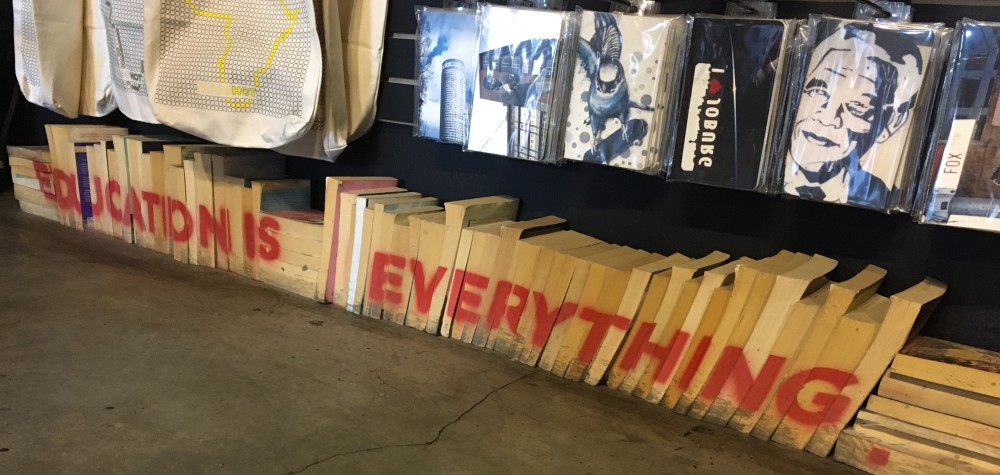Upon our arrival at City College-Chinatown/North Beach, a protest was occurring on campus. Students and community members were protesting the recent dismissal of over thirty faculty members, which has drastically cut the amounts of ESL courses available to students. City College offers credit bearing programs as well as non-credit earning courses, which demonstrates the wide range of support that they provide based on community needs.

Notably, this demonstration set the stage for our understanding of how City College works to support the community needs while also managing shifting organizational needs.
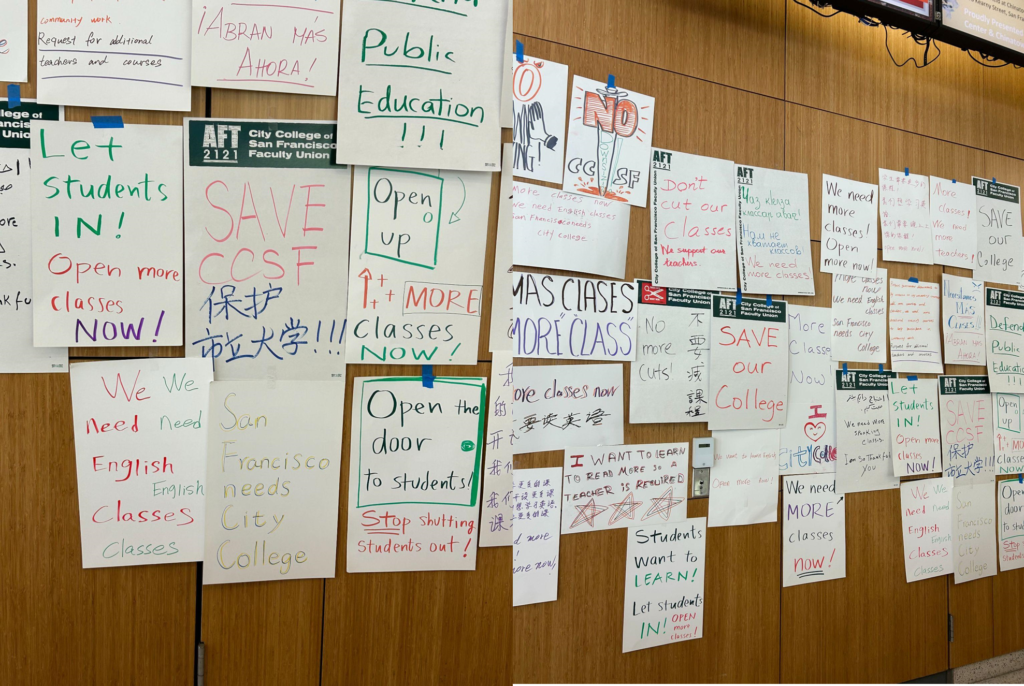
Next, we engaged in a tour of campus led by Dean Kit Dai. Importantly, this campus was developed twelve years ago in the heart of North Beach. However, City College faced pushback from surrounding businesses over the development. This new building symbolizes a dramatic shift in City College’s organization. Previously, City College operated from over 60 centers across the city to consolidating to six campuses presently. This shift in how City College is organized physically also represents the college’s effort to create central objectives.
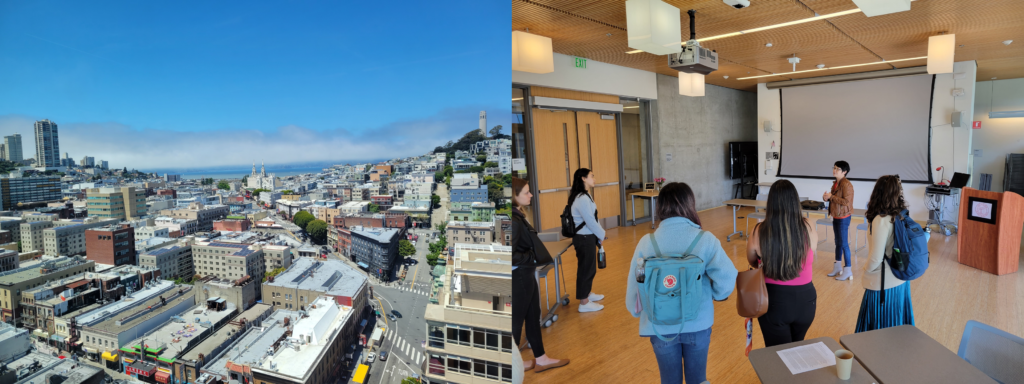
The Chinatown/North Beach Center has several physical spaces designed to meet the needs and interests of the student population. For example, they have an early education center to provide students the opportunity to work with children as a part of their degree program. They also have a sewing room for students interested in the fashion industry, as well as other course specific classrooms.

Following the tour, Geisce Ly (Interim Vice Chancellor of Academic and Institutional Affairs, and CSHPE alumnus) organized a panel for us that included community college leaders from around the Bay Area. Judy C. Miner (Chancellor, Foothill-De Anza Community College District), Tammeil Gilkerson (President, Evergreen Valley College), and David Wain Coon (President/Superintendent, College of Marin) joined us for a conversation surrounding leadership and governance in the community college system of California. One important insight from this panel was the importance of owning up to your mistakes. Each of these campus leaders described this as essential in their work. This concept spoke to the values of relationship building and authenticity to facilitate trusting partnerships within the campus and larger community.
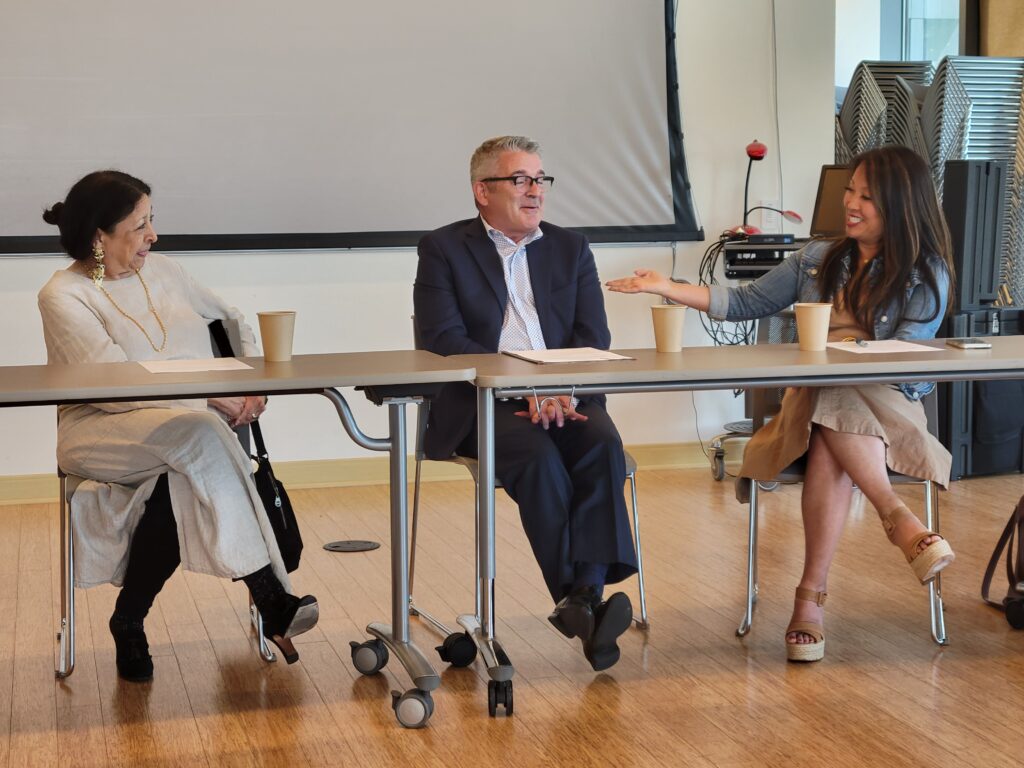
Next, another panel discussed various perspectives of community colleges. This panel included Mitra Sapienza (CCSF Academic Senate President and Equity Coordinator), Nhi Pham (CCSF student) Gohar Momijan (Vice President, ACCJC). This panel was helpful in understanding the faculty and student perspectives of City College. Importantly, it was evident that faculty facilitated authentic relationships with students to encourage their growth. Nhi attested to the supportive nature of City College in several capacities. Nhi shared her experience learning English, building her confidence, developing a supportive community, filling out job applications, and pursuing her dream of becoming a teacher as all possible because of her meaningful learning opportunities at City College.
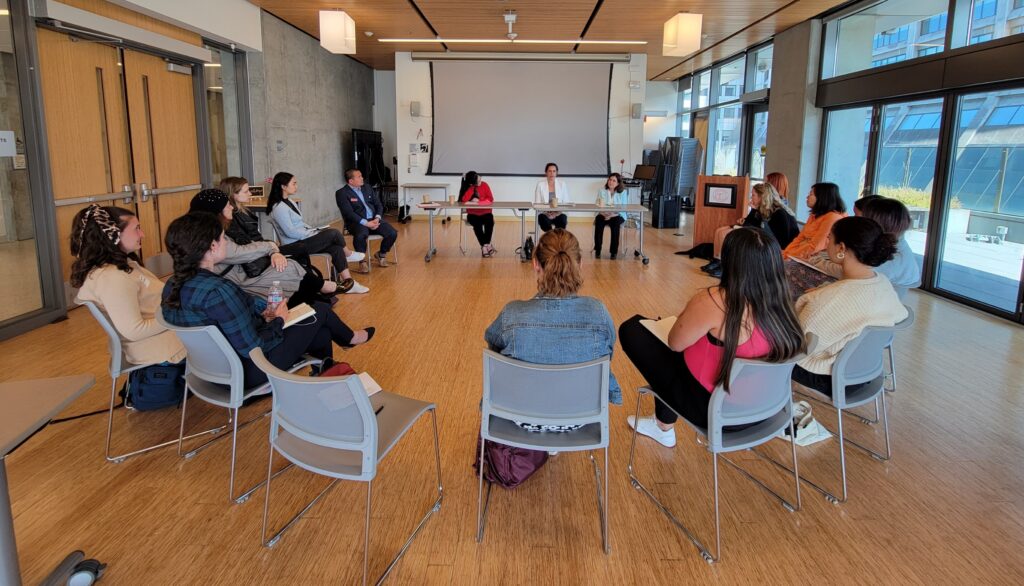
City College is working to provide learning opportunities designed for students’ needs while also trying to move to a more centralized organizational structure. Hearing from leadership, faculty, and staff offered insight into how City College cares for its community and the hopes for their future.
–Natalie Drobny, master’s student
